Get 'Em While You Can: 9 Samsung Devices That Apple Wants Banned
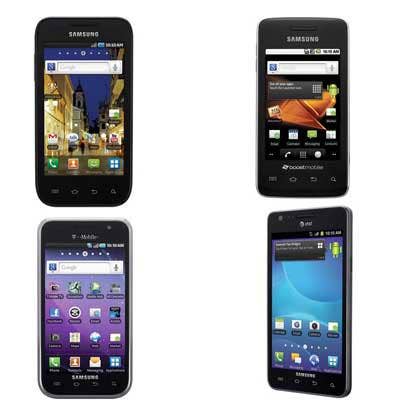
Samsung's Series Of Woes
A total of 28 Samsung devices were found to infringe on Apple's designs for the iPhone and iPad during a high-stakes legal battle that ended Friday with a verdict in Apple's favor.
But despite being awarded over $1 billion in damages, Apple isn't done seeking punishment for its South Korean rival's offenses. In a motion filed Monday, Apple has requested a permanent U.S. ban on eight Samsung smartphones, with a separate request reportedly filed for a ban on one of Samsung's most popular tablets.
Here's a look at the nine Samsung devices Apple is fighting to get pulled from the shelves, pending District Court Judge Lucy Koh's official ruling on September 20.
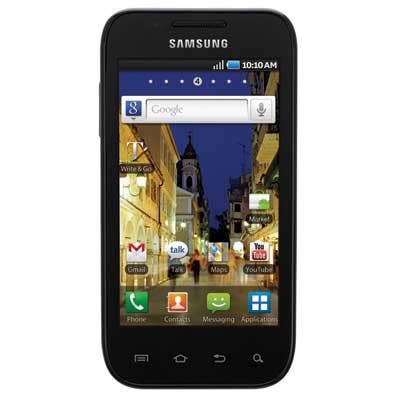
Samsung Galaxy S Showcase
Launched back in November 2010, the Samsung Galaxy S Showcase was one of Samsung's earliest Galaxy models, running only on C Spire Wireless (formerly Cellular South). It was found by the jury to infringe on two of Apple's patents, including the basic ornamental design of its black iPhone and the shape of the icons on its home screen.
But, since the phone was launched nearly two years ago, which can seem like an eternity in the fast-paced mobile market, Samsung shouldn't feel too much heat if the Showcase is ultimately banned.
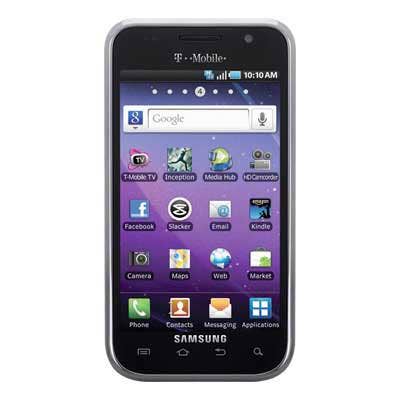
Galaxy S 4G
T-Mobile debuted Samsung's Galaxy S 4G, also one of Samsung's earliest Galaxy smartphones, in February 2011. Since its initial launch, the Galaxy S 4G has been updated to run Google's Android "Gingerbread" OS, and as its name suggests, it runs on T-Mobile's high-speed 4G networks.
The Galaxy S 4G, like most of the eight Samsung phones Apple is attempting to ban, was found to infringe on the basic look and feel of the iPhone, along with Apple utility patents for features such as tapping on a document to enlarge it.
Like the Showcase, Samsung shouldn't take too a big a hit if this phone is banned, as most shoppers have likely flocked to its newer Galaxy S II and Galaxy S III devices over the last year.
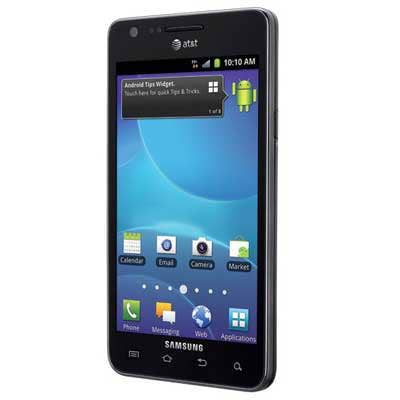
Galaxy S II AT&T
Samsung's second-generation Galaxy smartphone, the Galaxy S II AT&T, was unveiled October 2011 for $199. It touted a larger 4.3-inch screen size than its predecessor the Galaxy S, along with a slightly faster processor. Since its launch, the Galaxy S II AT&T has been updated to run Android "Ice Cream Sandwich" 4.0.
The Galaxy S II AT&T, like the Galaxy S 4G, sports a general hardware design that is strikingly similar to the iPhone's, the jury ruled. Its user icons, however, were off the hook.
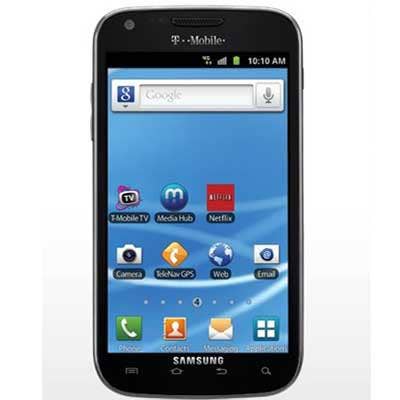
Galaxy S II T-Mobile
The T-Mobile flavor of the Galaxy S II was found to infringe on many of the same iPhone features as its AT&T counterpart, with the exception of the iPhone's "Bounce-Back" feature, which makes text appear to "bounce" into place when a user has scrolled to the end of a page.
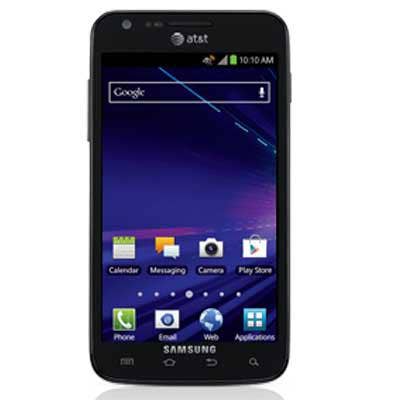
Galaxy S II Skyrocket
Launched in November 2011, the Galaxy S III Skyrocket is basically a souped-up version of the Galaxy S II, running a 1.5GHz Samsung Exynos processor and flaunting a 4.5-inch display. It originally launched with Android Gingerbread, but has since been upgraded to Ice Cream Sandwich. Today, it's available on AT&T's 4G network for $99.99 with a two-year contract.
Unlike many of the Samsung smartphones inspected by the jury, the Galaxy S II Skyrocket wasn't found to infringe on any of Apple's utility patents, meaning those related to scrolling or multitouch features. It was only found to look too similar to the iPhone in terms of its exterior design.
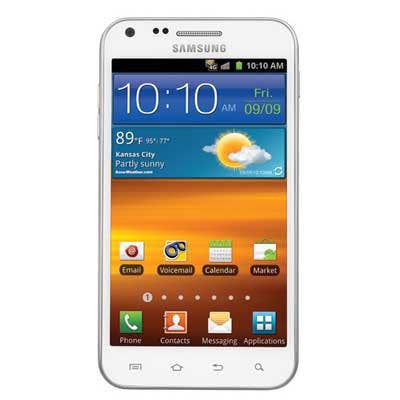
Galaxy S II Epic 4G Touch
Exclusive to Sprint's high-speed wireless network, the Galaxy S II Epic 4G Touch was one of Samsung's more business-focused Galaxy smartphones, including native support for Exchange ActiveSync, built-in compatibility with Microsoft Office and on-device encryption.
The jury found no fault when it came to Apple’s accusation that the Galaxy S II Epic 4G Touch copied the iPhone’s scrolling and tap-to-enlarge features, but they did find it guilty of leveraging the basic look and feel of Apple’s black iPhone.
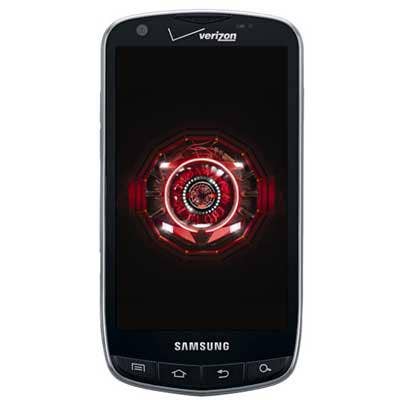
Droid Charge
Announced at the Consumer Electronics Show in January 2011, Samsung's Droid Charge runs Android 2.2 Froyo and is offered exclusively through Verizon. It's definitely more of a consumer-focused device, with Samsung dubbing it a "portable entertainment headquarters," with instant access to the Samsung Media Hub and an expansion slot for an extra 32 GB of storage for movies, songs and games.
The Droid Charge looks different enough from the iPhone in terms of hardware design, with a slightly raised edge at the bottom of its backside. But according to the Apple-Samsung jury, it still borrows its multitouch, scrolling and tap-to-enlarge features from the iPhone.
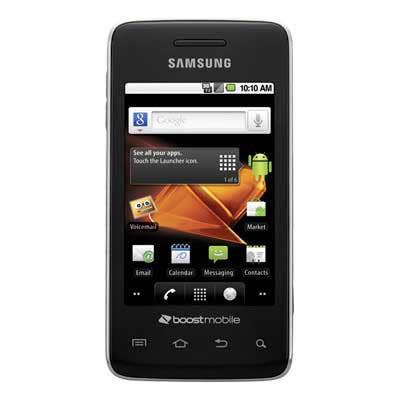
Galaxy Prevail
Offered by Boost Mobile since its launch in April 5, 2011, the Galaxy Prevail starts around $80 and runs Android Gingerbread. Its specs are fairly low-end compared to the Galaxy S II and Samsung's most recent Galaxy smartphone, the S III, which appears, by the way, to be off the hook and safe from a ban.
Like the Droid Charge, the Galaxy Prevail was said by the jury to be unique enough from the iPhone in terms of its outward design, but its touch and scrolling features didn't quite make the grade.
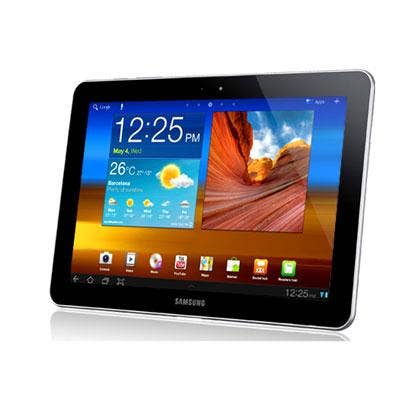
Galaxy Tab 10.1 (Cellular Version)
Apple is also seeking to nix the cellular version of Samsung's Galaxy Tab 10.1, the only Samsung tablet in the running for a potential ban.
According to a report Monday from Bloomberg, Apple filed a separate request for an injunction on the cellular Galaxy Tab, stating that "it is not colorably different from the products that the jury found to be infringing as to some Apple utility patents," despite not even being on the verdict form.
Apple's request for a ban came on the heels of Samsung filing its own motion to lift a preliminary injunction already placed on the Galaxy Tab 10.1. Samsung is arguing the ban should be lifted in light of the jury's decision that the tablet didn't infringe on any design patents for the iPad.
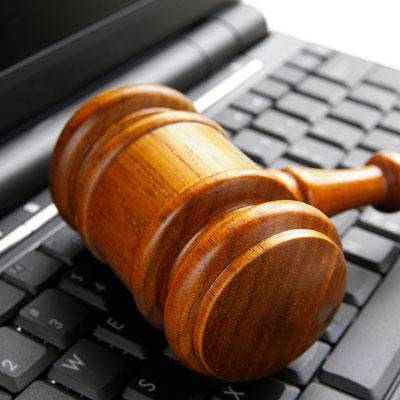
More Apple/Samsung Coverage From CRN
Apple Vs. Samsung
Is Patent Litigation On The Rise?
Samsung: Apple Victory To Hurt U.S. Consumers
Apple Wins $1B, But Jury Clears Galaxy Tab 10.1